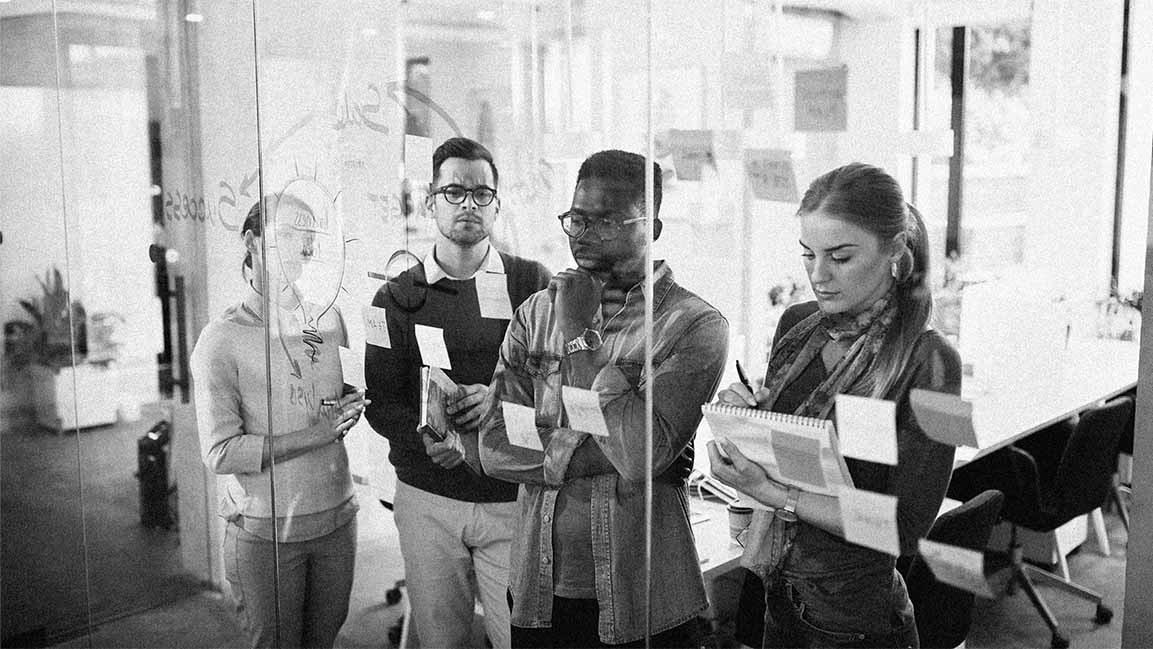- | 9:00 am
Want the perfect job? Employers in the Middle East are looking for these skills.
Technical abilities can be learned, but soft skills are a candidate's fundamental competency when executives are looking to assemble a high-caliber team.

Technical skills in your resume may no longer attract your prospective employers’ attention.
Why? Experts say technical abilities can be learned, but soft skills are a candidate’s fundamental competency when executives are looking to assemble a high-caliber team. “The irony of soft skills is that they’re often the hardest to master,” tweeted Adam Grant, an organizational psychologist at Wharton.
“Behavioral, social, and emotional skills make humans indispensable,” Grant added. And as recession fears, massive resignations, quiet quitting, and mass layoffs grapple the job market, acquiring soft skills can be your best bet to land a job.
Here are five soft skills that can help you stand out from the crowd in 2023:
ACTIVE LEARNING
Both students and job seekers seeking employment must strengthen their soft skills to compete in the labor market. Active learning techniques can encourage curriculum innovation and enhance the learning process for both students and teachers, particularly while studying disciplinary subjects.
“Active learning allows people to engage, apply, and reflect immediately on their knowledge gained. The interactive nature of the process enhances knowledge sharing and increases the opportunity to learn from peers. There are many wider benefits which include improved team building and morale, which enhance employee productivity and boost retention,” says Dr. Ray O. Johnson, CEO of Technology Innovation Institute and ASPIRE.
Approximately 74% of the CEOs who took part in PwC’s 23rd Annual Global CEO Survey (2020) already expressed concern about the scarcity of the necessary skills. Therefore, “effective leaders should continuously invest in upskilling their employees using active learning to enhance their adaptability, especially given the paradigm shifts across most industries thanks to technological advances like artificial intelligence, machine learning, and automation,” Dr Johnson adds.
FLEXIBILITY AND ADAPTABILITY
To increase employability, many candidates highlight crucial abilities on their resumes, like flexibility and adaptability. And in the wake of the pandemic, agility has emerged as one of the key intangible qualities for organizations and people.
While talking about the same, Yousef Khalili, President of Professional Services at TONOMUS says, “Flexibility and adaptability are paramount as companies work to redefine and innovate their business models in this time of great digital change.”
“Skillsets and job aptitudes are becoming increasingly blurred as talent must work hard to remain ahead of the curve to address shifting priorities in the workplace. While academic background and experience remain important, you must also learn to identify market shifts, proactively learn new things, and marry those qualities with your expertise,” Khalili adds.
CURIOSITY
Curiosity is one of the hottest new skills in the job market. “One of the most important things we look for when hiring a new candidate is their curiosity – ability to be continuous learners and explorers, says Sabine Holl, Vice President – Technical Sales and CTO MEA, IBM.
It encourages learning and the sharing of ideas, improves workplace communication, and fosters innovation. “When our curiosity is triggered,” Francesca Gino, Tandon Family Professor of Business Administration at Harvard Business School, wrote in Harward Business Review, “we think more deeply and rationally about decisions and come up with more creative solutions.”
Experts say a candidate’s curiosity frequently makes or breaks an interview. While we know the greatest threat to organizations today is talent retention, this is not about people only – it’s about having people with the right skills. And “we can’t rely on finding the latest skills in the market only,” says Holl.
“Organizations need to invest in their people to develop the right skills too. To build these fast-changing, ever-evolving skills, organizations need a great training platform and curious talent to make it happen,” Holl adds.
INTEGRITY AND SELF AWARENESS
The ability to recognize your strengths and weaknesses is a real plus for employers. Integrity creates a basis for trust that supports a culture of trust inside and beyond the organization. At the same time, self-awareness is an internal honesty that enables a candidate to comprehend their values, strengths, and shortcomings to maximize their contribution to the success of the team and organization as a whole and reduce risk.
“The integrity of a person sits at the core of how they will contribute to the organization’s culture and engage in their work. It is the kind of trait that elevates the trust in a workplace and reassures people outside the workplace,” says Dr Sonia Ben Jaafar, chief executive officer at Abdulla Al Ghurair Foundation for Education.
When you know that you can rely on a professional to have such a strong sense of honesty that they behave consistently towards a shared vision, Dr Jaafar says, “it strengthens the bedrock of any organization’s culture. When top recruiters are conducting interviews, they assess to see if the candidate will have the traits that will contribute to the best team possible, not just the technical skills.”
DIGITAL LITERACY
According to the World Economic Forum, digital soft skills will be more crucial as participating digitally becomes the norm in the post-pandemic hybrid workplace.
Employers want to know that the job candidates they are considering will be able to stay up with the various technologies that are used in today’s workplaces and occupations. Since the nature of technology is always changing, digital literacy is frequently described as a soft skill. “Digital skills are a vital component when it comes to getting hired in the future,” says Amna Usman Chaudhry, UNICEF Consultant with Giga blockchain, Metaverse, and Web 3.0 team.
With the advent of artificial intelligence, robotics, IoT, Web 3.0, and Metaverse, the future is tech-centric and digital. However, according to Chaudhry, the most important aspect of acquiring digital skills is the basis of connectivity.
Without the internet, a huge part of the future labor force is at a massive disadvantage and unable to access the global digital economy. “Even countries who want to improve the employability of their labor force seriously need to look at connectivity,” says Chaudhry.
According to experts, stepping outside of your comfort zone is one approach to acquiring these talents. Taking on new projects, assignments, and workshops can help you develop these skills.








































